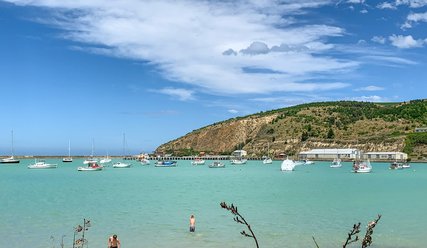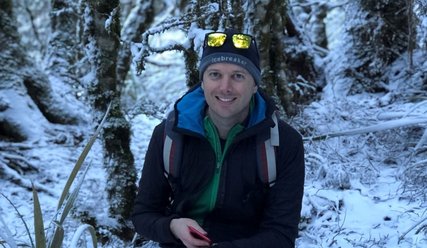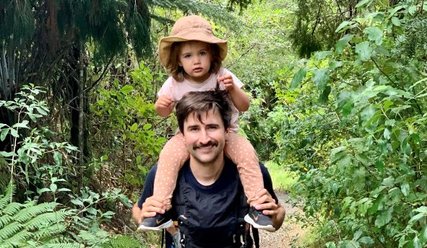Doctor by nature: Dr Jeremy Webber
Rural practice? Jeremy Webber (pictured left) was born to it. Raised in the rural reaches of the Manawatū and Whangārei, he was bonded from an early age to the whenua: “Throughout med school I always imagined myself doing rural general practice, but I was certainly in the minority in terms of wanting to do that.”
Ironically though, his first real taste of rural medicine came in Western Australia, in a remote rural rotation in Calgoorlie, 400 kilometres from Perth. “There, the GPs ran the hospital, they did the obstectric list, they did the anaesthetics.” It gave him an opportunty to work across scope, while fostering a real connection with patients and a continuity of care.
These days, that early passion for rural medicine is still inspiring Jeremy Webber in his new role as the Clinical Director of Rural Health for the New Zealand Rural General Practice Network. Countering negative perceptions of rural practice – the isolation, the stress, the potential for burnout – is part of his mission to enhance the rural GP workforce. “It’s fair to say that most newly-fellowed GPs have a fear of rural general practice in the sense of not being skilled enough, in an environment where you need to have a broad set of skills.” Currently, Jeremy estimates, some 20 percent of Kiwis are served by rural practitioners.
In his view, the rewards more than compensate for the challenges. “The opportunties and sense of satisfaction on a day-to-day basis,” he says with palpable enthusiasm, “are immense. You’re able to work to a full scope of practice, and you have the opportunity to look after people who are critically unwell, and right through from neo-natal to elderly and palliative care. You can follow them through a journey of preventative health medicine, in to acute presentations on to in-patient management and out the other side.”
That same sense of community has to be front and centre, he believes, to an effective pandemic response. Medicine strikes him as only a small part of COVID-19 care. “Much bigger, are all the other social aspects and housing, and we’re seeing that the whole Whānau Ora approach is so pivotal.”
Inevitably, he agrees, the community views their rural GP as part-counsellor and part-listening post, as much as someone who treats their physical ailments. Delivering high quality care with few resources taught him, for example, how to prioritise when making decisions about the transfer of patients: “You don’t want to leave a community wanting, because you’ve taken away the only ambulance, and one of the only nurses.”
In rural areas, sustaining a viable balance between pressing health needs and the available resources can be intense.“You might have a patient with significant mental health issues who requires an hour or two spent with them, and then you have someone else who presents with another acute problem, such as chest pain..This constant juggling is part of the excitement and passion that drives us in rural care, but it’s a big challenge.”
Ever the optimist, he sees the new health reforms as a chance to re-think rural practice and to resource it properly. Rural care and Māori healthcare have been neglected for too long, he says, and the health outcomes reflect this. “This is a chance to do it differently, so let’s give it a nudge and see what influence we can have.”
Professionally, what keeps him grounded? Alongside his new national role, he still devotes half his time to hands-on work at Lakes DHB. “In some respects, it’s a nice tonic. You can turn up to a shift at the hospital and that’s your set duty for the day, instead of some of the bigger picture stuff.”
Within his work-life balance, the outdoors adjacent to Taupō is one big reason why he lives there. “You’ve got a beautiful moana you can ski on and swim in, the mountain’s only an hour away, the mountain bike trails are endless..The opportunity to give yourself that important headspace, is really fantastic.“
Sharing it with him are his family, the truly key members of his ‘team’. “We’re lucky to have three kids so they provide plenty of distraction from the daily rigour of work. My wife is very supportive of these multiple hats that I juggle. To be [with them] in the mountains and the hills at a moment’s notice is really good for the soul.”
Typical, really. There’s a harmony and a passion in what Jeremy Webber brings to everything he does. Even the looming challenges of COVID-19 care don’t seem to daunt him: “We’ve already seen some wonderful barriers being broken down in terms of the primary/secondary care interface because of COVID. With every difficulty there’s an opportunity, so you just need to look at it in that light and run with a solution that fits your community.”


